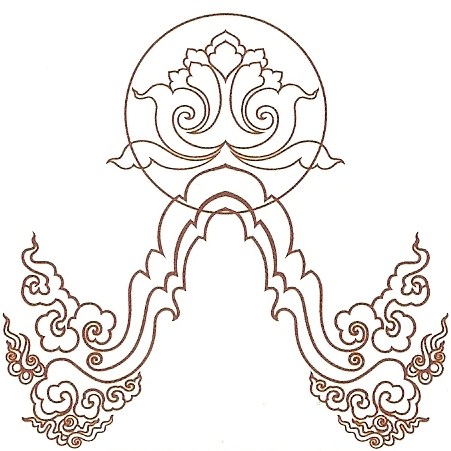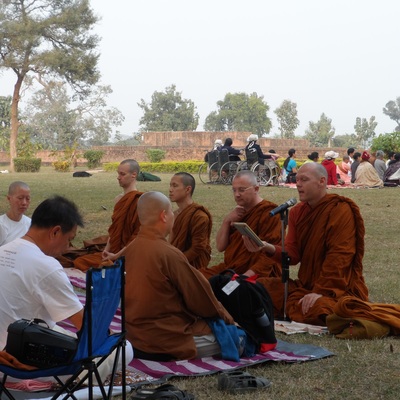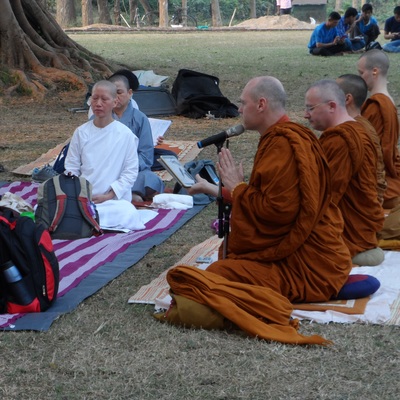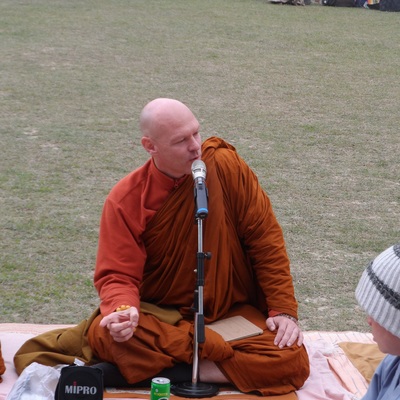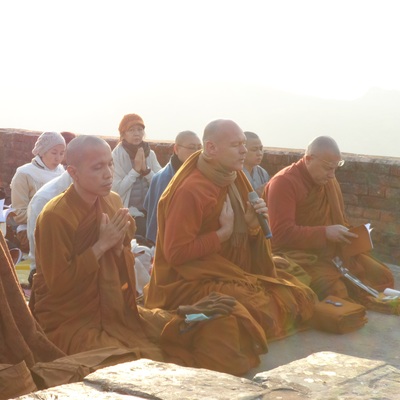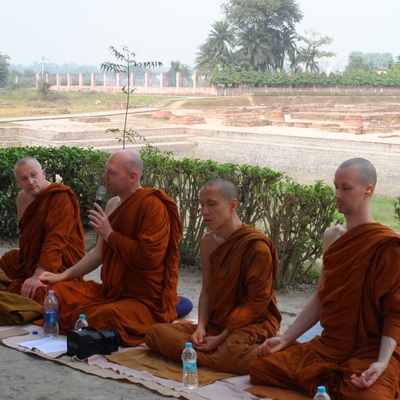The Archive |
Archive of additional Dhamma Talks
|
The Archive contains Talks and Guided Meditations which were taught either while giving a retreat or leading a Pilgrimage in India. The reason these items find themselves in a Collection called "The Archive,' is because although I believe the quality of the content is quite good… the quality of the sound recording is less than ideal. For people who love the Dhamma however, if you are willing to work with some back ground noise… you might actually find some 'sparkling jewels under a thin layer of dust' if you are willing to practice a little patience and determination.
(Ajahn Achalo)
|
A Special Note from Ajahn Achalo
I think it is fair to say that we modern people may have become a little spoiled with the quality of the media that we consume. Digital precision and Dolby stereo are now the expected norm. When I think of my own life as a monk in Asia these last 20 years or so however… and the places I have stayed in order to study and practice Dhamma. It seems that unpleasant 'background noise' has often simply been a completely unnegotiable part of the deal. Whenever I stayed with my teacher Ajahn Anan – there was always a big building project going on. The sound of delivery trucks and metal grinding was simply a part of 'practicing with the master.' At Wat Pah Nanachat… even as the monks retreat to their huts in the forest… the sound of the trucks changing gears and roaring down the highway less than a kilometre away can clearly be heard 24 hours a day. When visiting very senior monks on occasion who were revered meditation masters… one had to listen very very hard to hear the venerable master over the sound of the forest chickens! And even when the monks retreated to a remote jungle for the hot season, the sound of crickets, cicadas and birds was a constant. We learn… out of necessity… how to meditate 'with sounds' as part of the experience. There are many benefits to being able to do this.
Buddhist monks in the Thai Forest Tradition tend to spend most of their time these days in monasteries actually situated in forests. The senior monks teach visitors to and supporters of these monasteries at a certain time each day, balancing these duties with the commitment to their own meditation practice. Some senior monks accept invitations to teach one or two retreats each year, or perhaps to lead an occasional Pilgrimage to the Buddhist Holy sites in India. These retreats can occur almost anywhere. Occasionally they are in big professionally run centres… other times they are held in places that have been rented for the period of the retreat. Some great teachings can be shared on these special occasions – inspired by the sincerity of the attendees and the many years of practice of the teacher. Pilgrimages and retreats often have an 'on the road' quality where an attitude of 'doing the best with what we have' must prevail. This usually brings a lovely quality of gritty, 'realness' and humility to such occasions, which supports honest reflection and meditation. Naturally though, it is not always a given that the teachings offered in such contexts will be recorded to the highest of standards.
Since developing more interest in teaching retreats - and in sharing the teachings given on these occasions with a larger audience, I have been on a 'learning curve' with regards recording, editing and presenting teaching material. Sometimes the recorder is good… but if there is a lot of ambient noise (such as a loud air-conditioner or heater) this can affect the recording quality quite a lot. Background noises in the Holy Sites of India are another interesting challenge. Coughing in closed rooms at retreats held in winter… the taking off of nylon jackets etc, are also interesting 'sounds' to have to work with. Similarly… a cheap amplifier can create a surprisingly unpleasant background 'noise' and echo in what might have otherwise been a nice and clear voice recording.
Since I am the one who actually edits my own talks and meditations, and since I have been doing this for years now… I have become somewhat motivated to try and find ways to both improve the quality and reduce my workload! These days my second monk and I usually travel to teach retreats with our own small, but good quality amplifier complete with cordless microphones! (offered by our kind Malaysian students) And I have a small, yet very good quality digital recorder that I now tie to the microphone stand! (using a hi-tech rubber band :) So that the recorder is closer to 'the source' as it were - and then the ambient noise becomes less of a problem.
As we pay attention and keep trying we all learn as we go along. Learning how to apply 'qualities' such as patience, humility and true mindfulness however, are perhaps some of the most valuable things that one can learn.
I cordially invite those among you with a store of patience, determination and sincerity to explore "The Archive." And I sincerely hope that you may find something herein useful.
With Loving – Kindness
Buddhist monks in the Thai Forest Tradition tend to spend most of their time these days in monasteries actually situated in forests. The senior monks teach visitors to and supporters of these monasteries at a certain time each day, balancing these duties with the commitment to their own meditation practice. Some senior monks accept invitations to teach one or two retreats each year, or perhaps to lead an occasional Pilgrimage to the Buddhist Holy sites in India. These retreats can occur almost anywhere. Occasionally they are in big professionally run centres… other times they are held in places that have been rented for the period of the retreat. Some great teachings can be shared on these special occasions – inspired by the sincerity of the attendees and the many years of practice of the teacher. Pilgrimages and retreats often have an 'on the road' quality where an attitude of 'doing the best with what we have' must prevail. This usually brings a lovely quality of gritty, 'realness' and humility to such occasions, which supports honest reflection and meditation. Naturally though, it is not always a given that the teachings offered in such contexts will be recorded to the highest of standards.
Since developing more interest in teaching retreats - and in sharing the teachings given on these occasions with a larger audience, I have been on a 'learning curve' with regards recording, editing and presenting teaching material. Sometimes the recorder is good… but if there is a lot of ambient noise (such as a loud air-conditioner or heater) this can affect the recording quality quite a lot. Background noises in the Holy Sites of India are another interesting challenge. Coughing in closed rooms at retreats held in winter… the taking off of nylon jackets etc, are also interesting 'sounds' to have to work with. Similarly… a cheap amplifier can create a surprisingly unpleasant background 'noise' and echo in what might have otherwise been a nice and clear voice recording.
Since I am the one who actually edits my own talks and meditations, and since I have been doing this for years now… I have become somewhat motivated to try and find ways to both improve the quality and reduce my workload! These days my second monk and I usually travel to teach retreats with our own small, but good quality amplifier complete with cordless microphones! (offered by our kind Malaysian students) And I have a small, yet very good quality digital recorder that I now tie to the microphone stand! (using a hi-tech rubber band :) So that the recorder is closer to 'the source' as it were - and then the ambient noise becomes less of a problem.
As we pay attention and keep trying we all learn as we go along. Learning how to apply 'qualities' such as patience, humility and true mindfulness however, are perhaps some of the most valuable things that one can learn.
I cordially invite those among you with a store of patience, determination and sincerity to explore "The Archive." And I sincerely hope that you may find something herein useful.
With Loving – Kindness
Ajahn Achalo Bhikkhu

